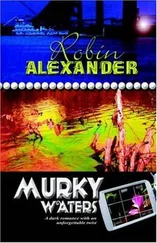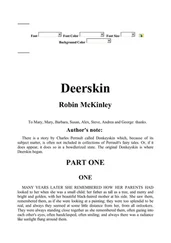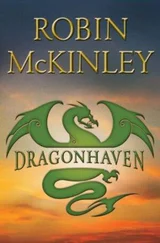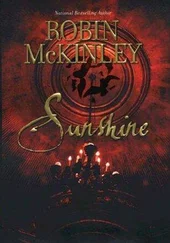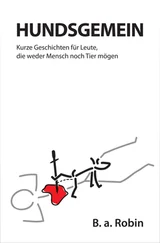Robin McKinley - Water
Здесь есть возможность читать онлайн «Robin McKinley - Water» весь текст электронной книги совершенно бесплатно (целиком полную версию без сокращений). В некоторых случаях можно слушать аудио, скачать через торрент в формате fb2 и присутствует краткое содержание. Год выпуска: 2002, ISBN: 2002, Издательство: Firebird, Жанр: Старинная литература, на английском языке. Описание произведения, (предисловие) а так же отзывы посетителей доступны на портале библиотеки ЛибКат.
- Название:Water
- Автор:
- Издательство:Firebird
- Жанр:
- Год:2002
- ISBN:9780142402443
- Рейтинг книги:4 / 5. Голосов: 1
-
Избранное:Добавить в избранное
- Отзывы:
-
Ваша оценка:
- 80
- 1
- 2
- 3
- 4
- 5
Water: краткое содержание, описание и аннотация
Предлагаем к чтению аннотацию, описание, краткое содержание или предисловие (зависит от того, что написал сам автор книги «Water»). Если вы не нашли необходимую информацию о книге — напишите в комментариях, мы постараемся отыскать её.
Water — читать онлайн бесплатно полную книгу (весь текст) целиком
Ниже представлен текст книги, разбитый по страницам. Система сохранения места последней прочитанной страницы, позволяет с удобством читать онлайн бесплатно книгу «Water», без необходимости каждый раз заново искать на чём Вы остановились. Поставьте закладку, и сможете в любой момент перейти на страницу, на которой закончили чтение.
Интервал:
Закладка:
“No,” said her Guardian, simultaneously with Water Gate, stepping silently up behind them, carrying plates in one hand and a bowl of steaming food in the other, saying also, “No.” Tamia turned and glared at him, and his mouth turned in the faintest, ironic smile, as he accepted that his “No” was nothing to her.
But she obeyed her Guardian. Dutifully she ate Water Gate’s excellent stew, and dutifully she lay down; and her Guardian was as good as her word—as she had always been—and sent her apprentice to sleep.
Tamia did not know what woke her, but she woke suddenly and completely. She raised herself on one elbow, and looked through the crack in the shutters; she could just see the outline of the trees and the Eagle against the sky. “It is time to go,” said her Guardian, calmly, from the darkness.
Tamia dressed quickly, and found a chunk of bread by feel for her breakfast. By then the light had increased enough, and her eyes had adjusted enough, that she had no difficulty seeing the stone bowl on the table, and the gleam of the water it contained. She stooped over her Guardian, and kissed her, and said, only a little breathlessly, “I will be back in time for tea,” and then she opened the door and turned back to pick up the bowl.
She had forgotten about Water Gate. He was standing at the top of the house-steps, looking out on the churned mud of the meadow. He turned to look at her. There was a tiny silence, and he said, “Good morning.”
She ducked her head in acknowledgement, and then slipped past him and down the steps. As she set her foot on the first stepping-stone to cross the water-garden, she heard him say softly, “Courage and good fortune to you.”
The need to walk so carefully that the water in the bowl never quivered, that no drop was ever at risk of sliding over the edge and being lost, was a useful focus for Tamia’s thoughts. She could not afford to think about how frightened she was, because it might make her feet clumsy or her hands shake; and so she did not think about it. She had her mouth a little open, so she could catch her breath more quickly, for the way was steep, but she was careful even so not to breathe too hard, for her own breath might disturb the surface of the water she carried.
It was still some minutes before dawn when she arrived at the deep narrow ravine between the Eagle and the Flock of Crows. She looked down the stony chasm and thought of a great Water Horse so vast and powerful that she could run up that slope; and then she had to remind herself again that she could not let her hands tremble. She put the bowl down, and then sat down beside it, and rested her head in her hands. She wished she had thought to bring herself something more to eat; and then she realised she was too tensely expectant to be hungry.
And so she sat, and waited for dawn, but as she waited, she began to be aware of a curious noise, a little behind and below her. It was a low, rhythmic noise, with a kind of gasp or grunt in it. At first she had thought it was the pre-dawn breeze, moving suspiciously up and down the crags and disliking what it found, but it was too regular for that; nor was it like any birdsong she had ever heard, not even the korac, whose family groups all talking together sounded like tiny axes chipping rock. At the same time it reminded her of something—some memory of the time before she had lived with her Guardian. Just to give herself something to do for the last few appalling moments before dawn and doom, she went to investigate.
The moment before she saw the mare, she knew what she was hearing. She was accustomed to watching over, and occasionally helping, her stepfather’s sheep birth, though only once had she watched a foal being born, at a farm next to one of the smallholdings that hired Columbine. That mare had made this same noise.
But it wasn’t the same noise. The farm birth had gone just as it was supposed to, and the foal had been born in one long slippery rush after the mare had lain and shoved and strained and grunted for not more than half an hour. Tamia knew, without ever having seen or heard it before, that this mare had been trying to push her foal out into the world for a long, long time, and was very near the end of her strength.
The mare’s eye was glazed, and her neck and sides were black with matted dirt and sweat; but even Tamia’s untutored gaze took in that she was a valuable animal who had been well cared for. “My poor lovely,” murmured Tamia, kneeling beside her head, “why are you here, in the wild, instead of at home being tended to? Did the Water Horse break your fence, your wall, and drive you away, up into the mountains where you could not find your way home?” It was unlikely there was anything Tamia could do, now, and alone, but seeing the painful, waning struggle of this gallant animal troubled Tamia deeply, even though the end of the world would come striding up the steep crag in another moment. Tamia forgot all that, and searched in her memory of lamb midwifery.
She moved round behind the labouring mare. She could see one little hoof sticking out of the mare’s vagina; it appeared and disappeared in rhythm to the mare’s weakening thrusts. Tamia knew what she would have done with a ewe, although she had never had to do it without someone else nearby who knew much more than she did; and she wouldn’t even know that much, except that sheep tend all to lamb at once, and sometimes the only extra pair of hands belongs to a little girl.
There was not even any water to wash in first. She knelt down, and slowly began to thrust her arm and hand up inside the mare’s body, feeling along the slender foreleg of the foal, till she found the second, bent leg, the knee shoved implacably against the wall of the mare’s birth canal. Slowly she shoved the foal back towards the womb again—the mare tried to resist her, but she was too weak. Slowly, slowly, slowly, her arm very nearly not long enough, trying to guess at what she could only erratically and incompletely feel, she rearranged the foal’s legs, felt that its little head was still pointed in the right direction, and began to drag it towards air and daylight and life. The mare’s contractions were only sporadic now; Tamia could no longer hear her groan through the noise of her own rasping breath.
Tamia was covered in blood and slime and mud; it was hard to keep a grip on the foal’s forelegs, and her knees and her other hand kept losing their purchase on the muddy ground; there was a stinging cut on the palm of her other hand where she had slipped on a sharp rock. Her neck and shoulder and back were on fire with cramp. She had stopped thinking about what she was doing, merely automatically pulling harder when the mare’s muscles helped her, pulling and pulling, awkwardly jammed against the mare’s hip, her other hand at first scrabbling for a better hold on the unsympathetic ground, and then, as the foal’s two forelegs emerged together, pulling with the hand that had been inside the mare. She had first knelt down trying to be aware of where the mare’s potentially lethal hind legs were; she remembered nothing now but pull—pull—pull.
The foal was out. She looked at it numbly, briefly unable to recall that this was what she had been fighting for. The second sac had broken some time before; now she wiped its nose and mouth free of mucus, but it lay unmoving. I knew—I knew— said Tamia to herself, but she took her skirt off, for lack of anything better, and began to rub the foal dry. She knelt over it, and rubbed it as if it were a bit of dirty laundry on a washboard; only to dirty laundry she had never whispered, “Breathe. Breathe. Breathe. ”
The foal gave a little gasp and choke, and then a long shudder. Its head came up off the ground, and then fell back with a thud, as if dropped. Tamia held her own breath; it could still have been too exhausted—or too injured—by its long struggle for what it needed to do next; and she was at the end of her own dubious expertise. It thrashed a bit with its legs, and stopped. And then suddenly, with a surprising, almost violent energy, it half-rolled up on its side, looking wildly around, as if it couldn’t imagine what had happened to it. Shakily it extended a foreleg; had a quick heave and flounder, and fell down. It lay gasping; and then rolled up again, and began to rearrange its forelegs. Tamia took a long breath . . . and thought to look at the mare.
Читать дальшеИнтервал:
Закладка:
Похожие книги на «Water»
Представляем Вашему вниманию похожие книги на «Water» списком для выбора. Мы отобрали схожую по названию и смыслу литературу в надежде предоставить читателям больше вариантов отыскать новые, интересные, ещё непрочитанные произведения.
Обсуждение, отзывы о книге «Water» и просто собственные мнения читателей. Оставьте ваши комментарии, напишите, что Вы думаете о произведении, его смысле или главных героях. Укажите что конкретно понравилось, а что нет, и почему Вы так считаете.

